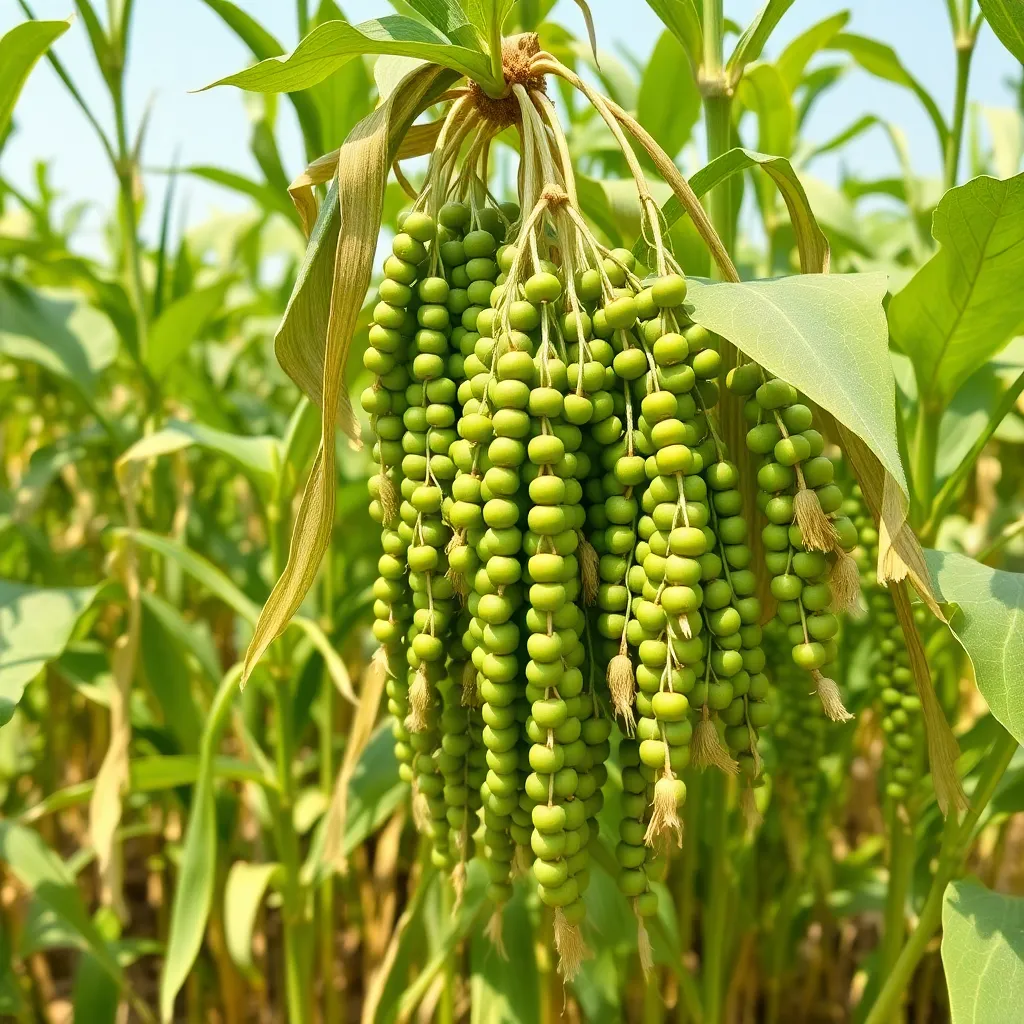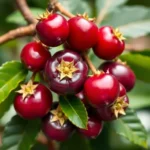
The cosmetics industry is increasingly focusing on natural ingredients to meet consumer demand for safe, effective skincare. A recent study explores the potential of green soybean seed (Glycine max L.) extracts in cosmeceutical formulations, particularly as an anti-tyrosinase and anti-aging agent. Green soybeans, known for their high procyanidin content, exhibit impressive antioxidant properties, making them a promising alternative for skincare products.
This article summarizes the key findings of the research conducted on the procyanidin extract from green soybeans, highlighting its role in skin health, tyrosinase inhibition, antioxidant activity, and product stability.
What Is Tyrosinase and Why Inhibit It?
Tyrosinase is an enzyme responsible for melanin production in the skin. While melanin provides protection from ultraviolet (UV) radiation, overproduction can lead to hyperpigmentation, including age spots, freckles, and melasma. Inhibiting tyrosinase can help reduce these issues, promoting an even skin tone. Traditional tyrosinase inhibitors, such as kojic acid, are effective but may cause skin irritation. As a result, natural alternatives like plant-derived polyphenols are gaining attention.
Green Soybean Extract: A Natural Anti-Tyrosinase Agent

The study demonstrates that crude procyanidin extract from green soybean seeds effectively inhibits tyrosinase activity. When tested at a concentration of 10 mg/mL, the extract reduced tyrosinase activity by over 60%, suggesting its potential as a skin-lightening agent.
- Half-maximal inhibitory concentration (IC50): The extract showed an IC50 value of 6.85 mg/mL, indicating moderate inhibitory strength compared to kojic acid (0.089 mg/mL).
- Procyanidin’s role: As a type of flavonoid, procyanidins block the active site of tyrosinase, making them valuable components in skin-whitening products.
Antioxidant Properties of Procyanidin Extract

The green soybean extract is also rich in antioxidants, such as phenolic and flavonoid compounds, which help fight oxidative stress and reduce signs of aging. These antioxidants neutralize free radicals that can damage skin cells, making the extract useful in anti-aging formulations.
The study measured the following antioxidant properties:
- DPPH scavenging capacity: 447 µM Trolox equivalents per gram
- Ferric-reducing antioxidant potential (FRAP): 1812 µM Trolox equivalents per gram
Read more on the role of antioxidants in skincare on ScienceDirect.
Safe for Skin Cells: No Cytotoxicity Detected
A significant finding is the absence of cytotoxicity in the tested extracts. The procyanidin extract enhanced the growth of human skin fibroblasts, with more than 108% cell viability observed in lab conditions. This makes the extract not only safe but also beneficial for cell regeneration and skin repair.
For in-depth cytotoxicity studies, visit MDPI
Developing an Anti-Aging Serum
The research team formulated a facial serum containing 5% procyanidin extract to test the stability of the active compounds. Key ingredients included sodium hyaluronate for hydration and ascorbic acid to stabilize the extract.
- pH stability: The serum maintained a skin-friendly pH of 6.2.
- Bioactive stability: The antioxidant content remained stable for up to 6 weeks when stored at 4°C, retaining over 76% of bioactive compounds.
Optimal Extraction Method for Maximum Efficiency

The procyanidin extract was obtained using ultrasound-assisted extraction (UAE), an eco-friendly technique that enhances efficiency and reduces processing time.
- Optimal conditions: Extraction at 15°C for 20 minutes resulted in the highest yield of bioactive compounds.
- Advantages of UAE: Compared to conventional methods, UAE consumes less energy, improves bioavailability, and preserves the structure of sensitive compounds.
Long-Term Stability of Green Soybean Extract
To determine the stability of the extract during storage, researchers stored the crude procyanidin powder at various temperatures for 12 weeks.
- Best storage temperature: At 25°C, the extract retained 80% of its bioactive compounds.
- Higher temperatures (45°C): Resulted in a decline in antioxidant activity, emphasizing the importance of cool storage for maintaining product efficacy.
Potential Applications in the Cosmetics Industry
Given its anti-tyrosinase activity, antioxidant properties, and non-toxic nature, the procyanidin extract from green soybeans offers significant potential for cosmeceutical applications. It can be used in:
- Whitening serums and creams
- Anti-aging products
- Moisturizers with antioxidant properties
Conclusion
The study on procyanidin extract from green soybean seeds highlights its potential as a natural alternative in cosmeceutical formulations. The extract not only inhibits tyrosinase activity but also offers antioxidant benefits, making it suitable for skin-lightening and anti-aging products. Moreover, its non-toxic nature and high stability under appropriate storage conditions further enhance its appeal to manufacturers seeking effective, plant-based solutions.
References
- Pohntadavit, K., et al. (2024). Tyrosinase Inhibitory Activity of Crude Procyanidin Extract from Green Soybean Seed and the Stability of Bioactive Compounds in an Anti-Aging Skin Care Formulation. Cosmetics, 11(178). https://doi.org/10.3390/cosmetics11050178
